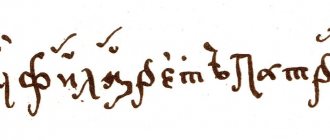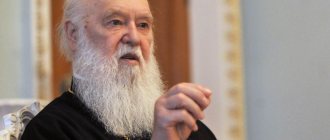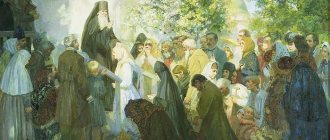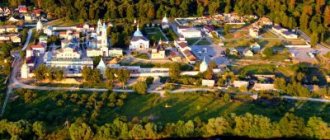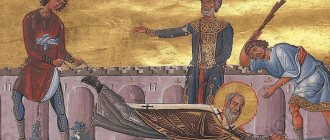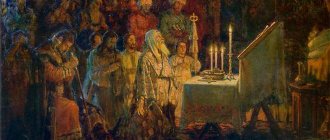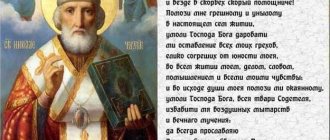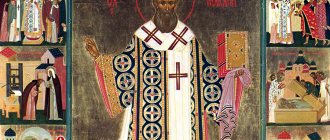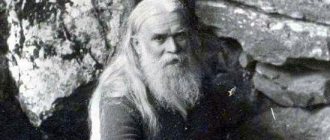Childhood and youth
The future metropolitan was born on December 26, 1782 in Kolomna under the name Vasily Drozdov. The boy's parents came from a hereditary clergy. My maternal grandfather served as an archpriest in the Church of the Epiphany, where little Vasya was born.
Filaret of Moscow
Father Mikhail Fedorovich, before the birth of his heir, was listed as a deacon in the Assumption Cathedral for almost a year; due to lack of housing, he had to live with his father-in-law. Two months later he was transferred to Trinity Church as a priest, and the family found their own house, which is still preserved - it stands on the street. Tolstikova, 52.
Since childhood, Vasily was distinguished by his ability to learn and his thirst for knowledge, especially since there was fertile ground for this: his father combined service in the church with teaching at the Kolomna Seminary, so there was a magnificent library at home. At the age of 9, the boy also found himself among the students of the seminary, from which roads to the schools of the Moscow diocese were open. However, the educational institution was soon transferred to Tula, and the father insisted that his son try his hand at the exams for the seminary of the Trinity Lavra.
Saint Philaret of Moscow
Vasily Drozdov, thanks to his wealth of knowledge, natural intelligence and prudence, easily passed the tests and was enrolled in the philosophy class. At school, the young man also discovered a talent for languages. The capable student was noticed by the patron of the seminary, Metropolitan Plato, and clearly favored him throughout his studies and then in his service.
At the educational institution, Vasily Mikhailovich also took mercy lessons, holding the position of senior officer at the seminary hospital. I faced death, painful incurable diseases, developed patience for my loved ones and comprehended the truth that everything in this world is perishable.
Icon of Philaret of Moscow
The young man received his diploma in 1803 and immediately began teaching the students of his native seminary Greek and Hebrew, and then poetry, eloquence and rhetoric. Metropolitan Plato admired Vasily’s gift for writing and oratory, saying that “he writes like an angel,” so he appointed him as a preacher.
The mentor and patron persuaded the young man to become a monk for a long time, but Drozdov still hesitated, even bringing this question to his father, who advised him to decide his own destiny. Vasily Mikhailovich matured by 1808 - he became a monk, taking the name of St. Philaret the Merciful, and a week later Plato elevated the student to the rank of hierodeacon.
Prayer to St. Philaret of Moscow
Oh, most glorious and God-wise Saint of Christ Philaret, lamp of the Russian Church, praise to our earth and adornment to the city of Moscow! You, by your life and service, were like the three universal saints: To the Great Basil - as you explained the existence of beings, to the Church of God and the mysteries of Christ the good builder appeared You were a zealous executor and patron of monastic rules; To the theologian Gregory - as if you were worthy of non-mysterious contemplations about the Holy Trinity and God’s Word, you appeared as a skillful herald of these; To John Chrysostom - as you were a tireless preacher and teacher of repentance for the people of God. And now, together with them, standing in glory to the Throne of God and interceding for us, we pray: To the Russian Church on the rock of confession of the Orthodox faith, to be more firmly established, to grant peace and unity to our country , shepherd the word of Divine Truth to rule, the city of Moscow and your flock from all misfortunes save. The holy monastery, where your honorable relics rest, according to the behest of St. Sergius, as his disciple, rule well; Strengthen the monks in their labors; make your mentors wise; Make those called to pastoral work, learning faith and piety in your spiritual city, chosen and worthy of this service. Look down from Heaven, O Saint, upon us, your children, and grant through your warm intercession to the Lord in His commandments that we may excel in firm faith, unfeigned love and piety until the last hour of death. Let us preserve ourselves, so that we may unashamedly present ourselves to our Savior, the Lord Jesus Christ, who is with the Father and by the Holy Spirit is due glory, honor and worship, now and forever, and to the ages of ages. Amen.
Holy feat
Filaret was going to spend his whole life in the Lavra, but fate prepared for him a dizzying career and assigned him a large role in church science and government affairs. As part of the reform of theological schools, the man, as the most capable in Trinity Seminary, was urgently summoned to St. Petersburg, where the hierodeacon became an inspector and bachelor of the philosophical class at the new academy, then taught theological sciences and church history here. From the pen of the saint a complete course of these teachings appeared, and he was also the first to give lectures in Russian.
Metropolitan Philaret of Moscow
Filaret began to gain popularity among the people, people admired his sermons, and in court circles he was recognized as a new bright luminary of the Russian Church. During the war with Napoleon, the people fell in love with the archimandrite even more - Filaret donated large sums for military needs. Three years after the victory, the saint composed a prayer of thanksgiving for the salvation of the Fatherland.
The service at the Theological Academy was marked by the beginning of a global work that became Philaret’s life’s work - translating the Bible into Russian. The impetus was the ups and downs of Russian society during the reign of Alexander I; the situation was complicated by the war with the French. People sought support and truth in books written by Western theologians and mystics.
Filaret of Moscow and Emperor Alexander I
Filaret abandoned the policy of strict prohibitions, decided that he needed to act softly, and sat down to translate. To do this, he assembled a team of translators, while he himself worked on the Gospel of John. In 1819, the Four Gospels were published, but this was only the beginning.
The priest had to go through a thorny path: he was subjected to criticism and accusations of false teaching, disgrace from the state, and work on the translation of the Holy Scriptures was stopped several times. The complete Bible in Russian was published after Philaret’s death.
Long Christian Catechism of the Orthodox Catholic Eastern Greek-Russian Church, 1835
Later, the priest also became famous as the author of the book “The Christian Catechism of the Orthodox Catholic Eastern Greek-Russian Church,” which was instantly sold out, and the publication was translated into several languages of the world. The collection of literary works also includes “The Legend of the discovery of the honorable relics of our father Mitrofan, the first bishop of Voronezh, and the grace-filled signs and miraculous healings.”
Already in the rank of Bishop of Revel, Filaret went to the independent Tver See, where a year later he accepted the rank of Archbishop. He traveled a lot around the diocese preaching and managed to live in Yaroslavl. And in 1821, he was finally summoned to Moscow, where he took the chair of high priests.
Temple of Philaret of Moscow
Filaret of Moscow had a hard time with the split of the Old Believers, which entailed the fall of the spiritual unity of the Russian people. On this topic, the priest wrote “Conversations to the Verbal Old Believer,” and under the influence of exhortations, a number of bishops joined the Orthodox Church.
At the capital's department, Filaret participated in the consecration of dozens of churches and monasteries built with his blessing. The last object erected under the patronage of the saint was the Moscow St. Nicholas Monastery of Edinoverie.
His authority grew rapidly, bishops from all over the country went to the Moscow ruler for instructions. The pillar of the Russian Church, later elevated to the rank of metropolitan, gained respect from the great princes, and emperors listened to his wise advice. Filaret was involved in all high-profile political events.
Alexander Pushkin and Filaret Moskovsky
During the cholera epidemic, the Metropolitan ordered a religious procession to go around the villages, and he and his brethren prayed in the fields in the open air. Another scourge that Filaret tried to fight was drunkenness.
The priest played the main role in the act of transferring the throne from Alexander I to Nicholas I. In 1823, Filaret, on behalf of the emperor, secretly created a manifesto on the succession to the throne from Tsarevich Constantine to Prince Nicholas, whom he crowned with his own hand three years later. He also performed the sacrament of coronation of Alexander II.
Filaret did not support the abolition of serfdom, but the metropolitan was instructed to compile the final edition of the “Manifesto” of 1861. I had to work on the tsar’s appeal to the peasants, but it was this work that gave rise to even greater people’s love for the priest.
Saint Philaret of Moscow. Prayer service for the beginning of the restoration of the chambers of the Romanov boyars, 1858
However, Filaret did not always obey the will of the rulers. For example, he flatly refused to illuminate the Triumphal Gate built by Nicholas I in honor of the victory in the Patriotic War. The priest said he had no intention of “sprinkling holy water on statues representing pagan false deities.” The people were delighted with Filaret's audacity, calling the act a confessional feat.
Filaret led the Moscow diocese for almost 50 years. He placed liturgy at the forefront of his work. Even in his old age, when illnesses did not allow him to live in peace, he did not miss a single Sunday. The Metropolitan's biographer noted his quiet voice, beautiful and prayerful.
Relations between Metropolitan Philaret and the authorities
Denunciations against the Metropolitan in St. Petersburg were received by almost dozens. The secular authorities could not possibly like, for example, his words that “the sovereign receives all his legitimacy from church anointing,” therefore, the secular authorities themselves cannot at all interfere in church affairs. Such views ran counter to the policy of the empire, moreover, to the very existence of the “collegium of spiritual affairs”, the Synod, since the time of Peter I, headed by a secular chief prosecutor. One day the saint publicly besieged Count N.A. Protasov, who held this position, who sat down at a meeting with the bishops: “How long ago, your Excellency, did you receive consecration?” The ashamed chief prosecutor had to take a seat at a separate table - but, of course, he did not forget the “lesson.”
A.I. Herzen, a famous revolutionary who is difficult to suspect of sympathizing with the Church, called such intrepid denunciations the ability to “cunningly and cleverly humiliate the temporary government,” although, in fact, the saint only spoke about the real state of affairs: according to G.A. Florovsky,
The Bishop “reminded in a surprisingly indelicate manner of the internal independence of the Church” to the state, which considered it subordinate to itself.
The most serious conflict occurred in 1842, when two metropolitans - Moscow and Kiev - firmly advocated translating the Bible into modern Russian, so that the Word of God would be better perceived by an educated society and people. And this was when, as a contemporary put it, “the most devout people had the unfortunate thought that people were going crazy from reading this holy book.” For example, reading the Gospel was strictly prohibited for cadets of military schools under the pretext that they might “go crazy.” Both bishops were “dismissed from attending” the meetings of the Synod.
But here’s what’s interesting: documents were constantly sent to the saint for approval. Moreover, even Mr. Protasov himself periodically visited him: without the wisest of Russian bishops, as it turned out, it was impossible to solve a single matter!
Recognition of the spiritual authority of the saint was the numerous orders granted to him and the last award - shortly before his death: as a commemoration of half a century since the day of episcopal consecration, the right to “present the cross” during the service, to wear the cross on the miter, as well as two panagias.
Death
Once Filaret of Moscow shared a dream with his confessor, in which his long-dead father ordered to “save” the 19th. Since then, on this day of every month, the Metropolitan received communion and received anyone who asked as a guest.
Filaret of Moscow in old age
Two days before his death, Elder Filaret suddenly felt a surge of strength and realized that this was a sign - usually old people are filled with vigor before their death. On Sunday, November 19, 1867, the Metropolitan held a liturgy in the Trinity Metochion, then talked with visitors and retired to his office to work.
The assistant, without waiting for the priest who was late for lunch, went to remind him about the beginning of the meal and found him kneeling. Filaret was no longer able to speak, and died a couple of hours later. Another version of the legend says that a man died near the washbasin and was found already dead.
Relics of Philaret of Moscow
The relics of St. Philaret were buried in the Trinity-Sergius Lavra, where they rested for 140 years along with the remains of St. Innocent of Moscow. In 2004, the priest’s will was violated by transferring the relics to the Church of the Savior in the capital of Russia.
Literary heritage
It is so extensive that it was possible to compile a more or less complete bibliographic index of his works only in 2005. The most important works of the saint include:
- Synodal translation of the Bible, which he made together with other theologians;
- "Catechism", which was officially recommended as a textbook on the subject of "The Law of God" for educational institutions until 1917;
- interpretations of St. Scriptures, including his first work, “The Outline of Church Biblical History”;
- numerous sermons;
- in addition, St. Philaret has compiled a daily prayer, the words of which many modern Christians like to turn to God.
Temples in honor of the saint
To date, 12 of them are known on the canonical territory of the Russian Church:
- most of all - 8 churches - are located in the capital and the Moscow region;
- The northernmost church of St. Filareta is located in the Yamalo-Nenets Autonomous Okrug;
- the only temple outside modern Russia is in the Brest region of Belarus.
His voice continues to be heard through the centuries - in the words of his prayer, lines of Scripture, providentially translated from Church Slavonic shortly before the onset of decades of persecution, when people lost not only their faith, but even minimal knowledge about it. One of the wisest Russian bishops is still with us, teaching and instructing “in season and out of season,” according to the words of the Apostle.
Natalia Sazonova
Memory
- Icons, prayers and akathis - church hymns of praise - are dedicated to the High Hierarch.
- The throne of the lower church of the house church of the martyr Tatiana at Moscow State University was consecrated in honor of Filaret.
- 1994 – The Russian Orthodox Church canonized Philaret, and the metropolitan’s memorial day was set for November 19.
- 1994 - The Moscow Higher Orthodox Christian School (now St. Philaret Orthodox Christian Institute) bears the name of the saint.
- In 1996, a memorial cross was erected near the Church of the Holy Apostles Peter and Paul in the Memorial Park of Kolomna (the priest’s homeland) to Philaret’s relatives buried here.
- 1998 – the first Orthodox school named after Philaret of Moscow was opened in Zelenograd.
- 2017 - the asteroid, discovered by astronomer Lyudmila Karachkina back in 1982, acquired the name Filaret.
Prayer
God! I don’t know what to ask from You. You alone know what I need. You love me more than I can love myself. Father! Grant to Your servant what I myself do not dare ask for. I do not dare to ask for either a cross or consolation: I only stand before You. My heart is open to You; You see needs that I don't know. See and create according to Your mercy. Smite and heal, overthrow and raise me. I am in awe and silent before Your Holy Will and Your destinies, incomprehensible to me. I sacrifice myself to You. I surrender to You. I have no other desire than the desire to fulfill Your Will. Teach me to pray! Pray within me yourself. Amen.
Personal life
As someone who had accepted the monastic feat, he, of course, could not have a family and children. But he had many relatives in whose lives he took an active part. Sister Agrippina Mikhailovna Drozdova (married Epiphany) and brother Nikita Mikhailovich Drozdov had many children, whose fate was not indifferent to Metropolitan Philaret. He married many of his nephews and nieces to worthy people. One of his descendants is everyone’s favorite TV presenter Nikolai Nikolaevich Drozdov , who hosted the “In the Animal World” program for many years. Metropolitan Philaret is his great-great-great-uncle.
